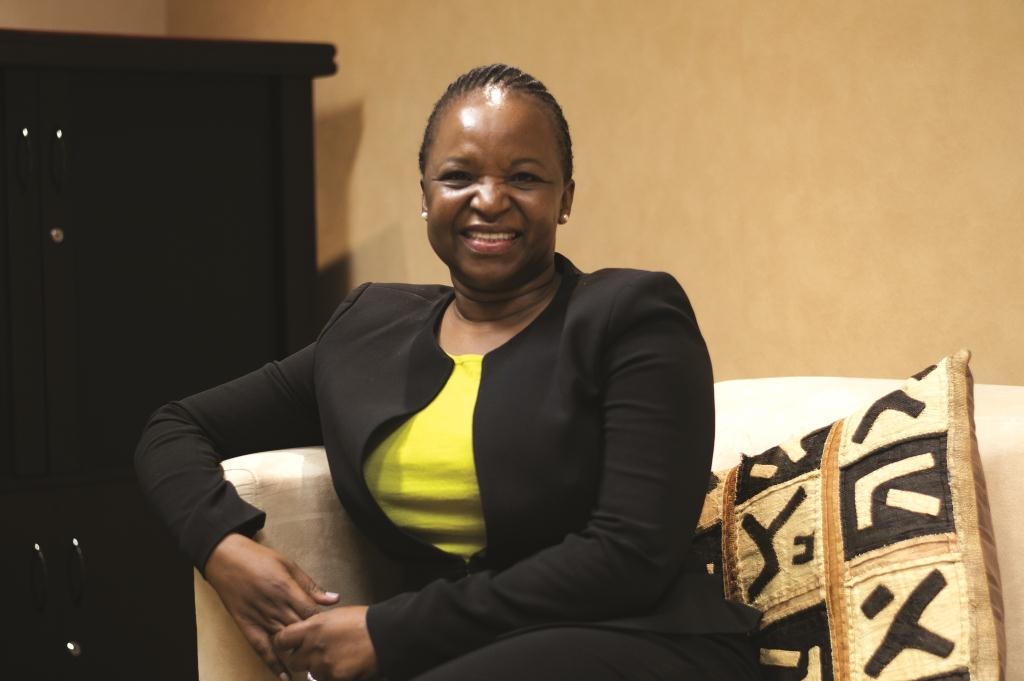Busi Mabuza was born in Barbeton, a white town in Mpumalanga, South Africa, but grew up in the townships. At the age of 12, she went to a private Catholic boarding school in Limpopo but finished her matric in Pietermaritzburg.
Her nomadic life was just beginning. Hoping to acquire an engineering degree, Mabuza enrolled for it at the University of Natal in South Africa’s KwaZulu-Natal province. However, this did not happen as she didn’t do well in one of the subjects – engineering drawing – mandatory to complete the course. Undeterred, she commenced a degree in mathematics at the University of the North (now the University of Limpopo); she didn’t finish this either due to the state of emergency declared in 1986 by the old South African government. Mabuza was arrested and then banned from all educational institutions.
With nowhere else to go in South Africa, Mabuza moved to Atlanta, United States, where she had to start her mathematics and computer science degree all over. She worked part-time in the computer room and at a systems integration company. Working helped her realize that she didn’t know much about the business world, so she enrolled for an MBA in finance and information systems.
“The lesson that sticks in my mind is how integrated the world is, and that you have to understand every single economy and product in the global context,” says Mabuza.
She says that big business in South Africa knows this while start-ups are inward facing until the businesses grow or face failure.
Loading...
“Since coming back into the country I’ve had a fair amount of time looking at the investment environment,” she says.
When Mabuza returned to South Africa, she joined Investec Asset Management in Cape Town, where she learnt all about analyzing companies and management strategies.
In the mid to late 1990s, there was a growing trend towards Black Economic Empowerment (BEE) transactions. This meant she had to start looking at non-listed investments too. This required more contact with management to understand the business and was therefore more personal.
Mabuza moved to Johannesburg hoping to be a BEE queen. After a couple of years on her own, a group of women asked her to join the Woman’s Private Equity Fund, later moving on to Ethos Private Equity, where she became a director.
After three years as a board member at the Industrial Development Corporation (IDC), Mabuza’s appointment as chairperson of the board came as somewhat of a shock to her. She was asked if she would stay on for another term on the board but it wasn’t until the Annual General Meeting that Ebrahim Patel, the minister of Economic Development, pulled her aside to let her know of the new responsibility placed on her shoulders.
The development component of the IDC has a personal appeal to Mabuza. She thinks the IDC will have done well if it has a visible impact on the economy through backing more black entrepreneurs to play a meaningful role in the country’s economy and in reigniting manufacturing. The Department of Trade and Industry launched the black industrialist program, which the IDC will support but not be directly involved in.
She also says we need infrastructure that can continue to attract foreign investment and help local businesses to worry less about basic infrastructure.
The IDC is South Africa’s largest development finance institution with a R100 billion ($8.4 billion) plan over the next five years and Mabuza believes the board is a guide, the conscience of the organization and custodian of values. She says the board will advise the good management team in place and make sure they focus on the necessary sectors.
“I’ve had a very interesting career in financial services,” says Mabuza. And it’s a long way from being over.
Loading...
